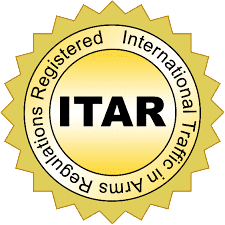Understanding Industrial Waste Management
Definition and Types of Industrial Waste
Industrial waste encompasses a wide range of materials discarded during industrial processes. It includes both hazardous and non-hazardous waste:
Hazardous waste: Poses significant risks to human health and the environment. Examples include chemicals, solvents, and heavy metals.
Non-hazardous waste: While not immediately dangerous, this waste still requires careful handling due to its volume and potential long-term impact. Examples include packaging materials, paper, and scrap metal.
Importance of Proper Industrial Waste Management
Proper industrial waste management is essential for multiple reasons:
Environmental Impact: Mitigating the harmful effects of waste on ecosystems.
Operational Efficiency: Streamlining processes and reducing waste generation.
Corporate Reputation: Enhancing public perception and compliance with regulations.
Effective waste management involves strategic actions aimed at minimizing the environmental footprint of industrial operations. Managing industrial waste is crucial for addressing these challenges and implementing waste-to-energy technologies as a dynamic solution.
Assessing and Measuring Waste
Conducting a Waste Audit
A waste audit is the cornerstone of effective industrial waste management, focusing on understanding and managing the waste generated by industrial operations. It involves a detailed assessment of the types and quantities of waste a company generates. This audit helps identify inefficiencies and areas for improvement.
Tracking and Monitoring Industrial Waste
Tracking and monitoring waste is crucial for implementing a successful waste reduction program. Tools like the ENERGY STAR Portfolio Manager can help businesses track waste, energy, and water data, benchmark performance, and identify opportunities for improvement.
Waste Reduction Strategies
Waste Minimization and Prevention Techniques
Eliminate waste is the most effective way to manage industrial waste. Key techniques include:
Source Reduction: Altering production processes to reduce waste generation.
Process Optimization: Improving efficiency to minimize waste.
Buying in Bulk and Rethinking Packaging
Buying raw materials in bulk reduces packaging waste and lowers costs. Rethinking packaging involves using eco-friendly materials and designing packaging that minimizes waste.
Recycling and Reuse of Waste Materials
Recycling and reusing industrial waste materials conserve resources, reduce environmental impact, and lower energy consumption. This includes:
Material Recovery: Collecting and processing waste to extract usable resources, which reduces energy consumption.
Byproduct Reuse: Transforming waste into valuable materials.
Using recycling bins for segregating recyclable materials from other waste in the factory premises is also crucial.
Waste-to-Energy Technologies
Overview of Waste-to-Energy (WtE) Technologies
WtE technologies convert solid waste into energy through processes like incineration, gasification, and pyrolysis. These technologies address waste reduction and energy generation.
Benefits of WtE Plants
WtE plants process various waste types, transforming them into reusable products and reducing dependency on fossil fuels.
Safe Storage and Handling of Hazardous Waste
Implementing Proper Storage and Handling Techniques
Proper storage and handling of hazardous waste are vital to prevent accidents and environmental harm. Best practices include:
Storing waste in designated areas.
Using personal protective equipment (PPE).
Following established protocols.
Partnering with Certified Waste Management Providers
Partnering with certified waste management providers ensures that hazardous waste is treated and disposed of according to legal and environmental standards.
Effective Disposal and Treatment
Safe Disposal of Hazardous Waste
Landfills, when properly managed, provide a safe environment for non-hazardous waste. They help minimize environmental impact and ensure compliance with regulations.
Responsible Treatment of Industrial Waste
Organic waste management is crucial for responsible industrial waste treatment. Specifically, the treatment of food waste through methods like aerobic composting, anaerobic digestion, and mechanical biological treatment can convert it into usable compost and biogas.
Composting is an effective strategy for managing organic industrial waste. It involves using composting bins and tools to turn waste into valuable compost, promoting sustainability.
Overcoming Challenges
Resistance to Change in Industry Practices
Many businesses resist adopting new waste management methods due to concerns over disruption. Overcoming this resistance is crucial for progress.
Financial Considerations and Regulatory Barriers
Implementing new waste prevention technologies often requires significant initial investment due to the need to manage the waste produced. Ongoing maintenance and regulatory compliance can also strain budgets.
The Role of Technology in Sustainability
Leveraging Technology for Efficient Industrial Waste Management
Technology plays a pivotal role in improving industrial waste management by:
Developing more efficient recycling techniques.
Innovating waste treatment technologies.
Creating advanced materials that are easier to recycle.
Innovative Solutions for a Sustainable Future
Addressing industrial waste challenges requires a unified effort from businesses, governments, and individuals. By embracing innovative waste reduction strategies, significant progress can be made.
Conclusion
Key Takeaways for a Sustainable Future
Effective industrial waste management is achievable through:
Conducting thorough waste audits.
Prioritizing waste reduction.
Ensuring effective segregation.
Partnering with reputable waste management providers.
The Importance of Industrial Waste Management for the Environment
Proper waste management practices reduce environmental pollution and health risks. They help conserve natural resources and mitigate the adverse impacts of waste disposal, fostering a sustainable future.

